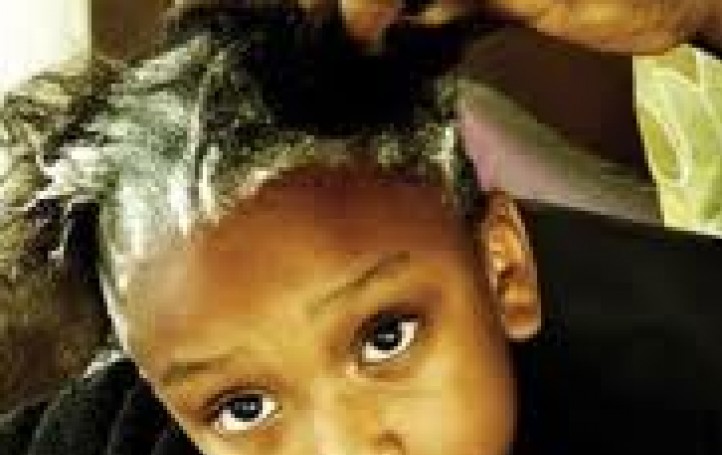Black Hair Relaxers and Children

 It is no secret that the Black Hair Care industry is a multi-billion dollar industry. Black men and women spend thousands of dollars every year on styling, black hair care products, hair extensions, weaves, wigs and accessories. As a self-proclaimed "product junkie," I too fall within this category. As Black women, we take great pride in our hair and what it represents. Sure, we would all love to have the sentiment that India Arie displayed in her song, "I Am Not My Hair," but the truth is, many of us are.
It is no secret that the Black Hair Care industry is a multi-billion dollar industry. Black men and women spend thousands of dollars every year on styling, black hair care products, hair extensions, weaves, wigs and accessories. As a self-proclaimed "product junkie," I too fall within this category. As Black women, we take great pride in our hair and what it represents. Sure, we would all love to have the sentiment that India Arie displayed in her song, "I Am Not My Hair," but the truth is, many of us are.
History has taught us that hair not only represents who you are, but what you are. As I watched an episode of the Tyra Banks Show this afternoon, which originally aired in August, I found myself full of emotion as I listened to 5 young black girls describe what their definition of "good hair" was. The episode entitled, "What Is Good Hair?" explored the lives of 5 women and their daughters growing up in a society where hair and self-esteem are one in the same. During the episode I watched as a 3 year old little black girl suffered through what seemed to be a painful hair-relaxing experience. Why a 3 year old child would need
to have a relaxer is beyond me and my comprehension. Nevertheless, the mother explained that it made life easier for the both of them. After considerable tears and exclamations of pain, the process commenced and the child and her mother were pleased with the results; no more "nappy" hair!
It is easy to sympathize with the mother who has a "tender-headed" daughter. No mother wants to see their child in pain, and for some, hair-combing can seem like a torturous experience. What concerns me are the mothers who want to "change" the texture of their child's hair in order to become more "socially acceptable". These mothers argue that although times have changed, the opinions of society have not. They argue that there is still the classification of "Good" and "Bad" hair when it comes to Black women. If you have "Good" hair, (hair that isn't kinky or frizzy), you have a better chance at life. There is the assumption that Black women with "Good Hair" will get better jobs, marry, and be happier in life. However, society is not the only one to blame; it is the mothers who are projecting their self-hatred onto their children that I find at fault.
A mother's job is to encourage their daughters to embrace and enjoy their natural beauty. What message are we sending them by changing who they are at such an early age? Not only are these mothers destroying their daughter's hair at an early age, but they are destroying their self-esteem along the way.
